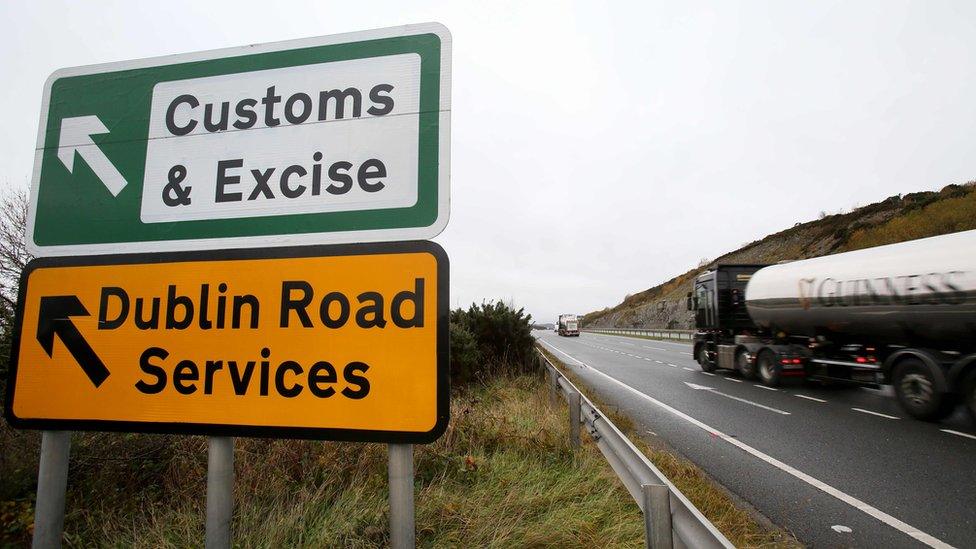No-deal Brexit 'would hit NI economy by at least 3%'
- Published
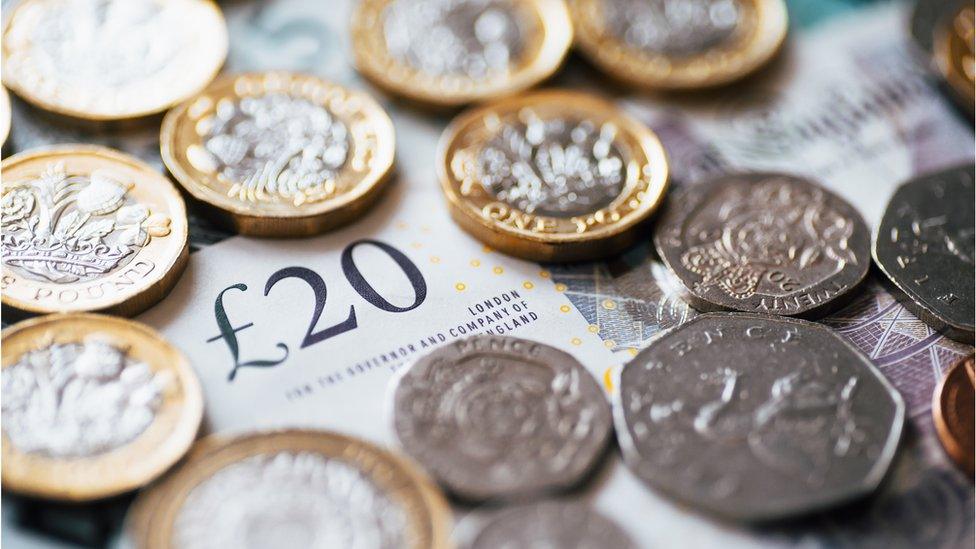
The new study also suggests the backstop would negatively impact the NI economy
A no-deal Brexit would mean Northern Ireland's economy would be at least 3% smaller compared to if the UK stayed in the EU, new analysis suggests.
That is a much less severe impact than a UK government analysis which suggested a 9% hit, external.
The two studies are not directly comparable as they use different economic models with different underlying assumptions.
It also suggests the backstop would negatively impact the NI economy, external.
However, the study, from the Fraser of Allander Institute (FAI), finds that the impact of a hard Brexit is worse than the backstop.
The backstop is a position of last resort to prevent the hardening of the Irish border in the absence of other solutions.
It would see Northern Ireland staying aligned to some rules of the EU single market and the whole of the UK forming a "temporary single customs territory" with the EU.
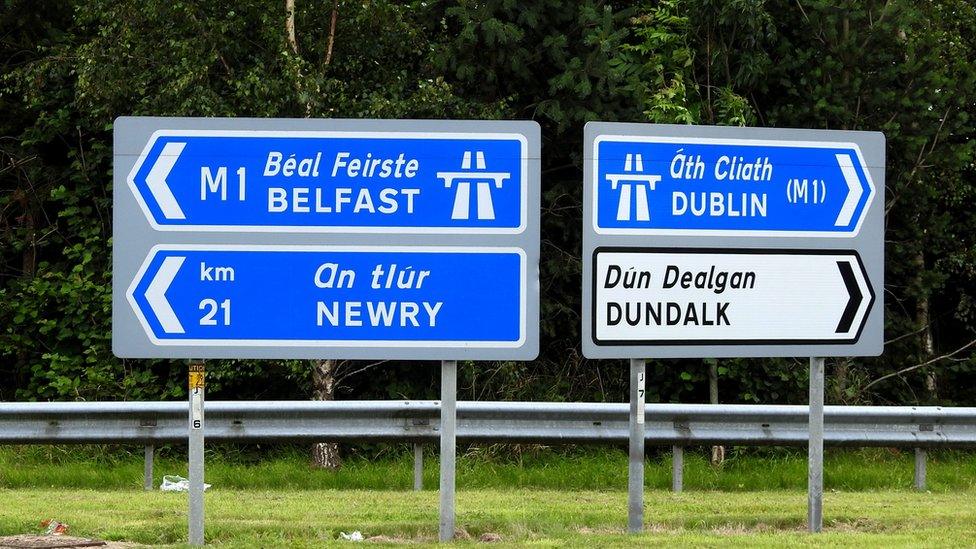
It would mean some products coming into Northern Ireland from elsewhere in the UK would be subject to new checks and controls.
Those checks would be new "trade frictions", adding to the cost of doing business.
The study suggests a backstop would make the NI economy between 1.3% and 2.7% smaller after 15 years, compared to its size if Brexit did not happen.
The size of the impact would depend on how much the UK diverged from the single market with more divergence leading to a more negative impact.
The least damaging Brexit - according to the study - is the "Norway option" where the whole of the UK effectively remains in the single market.
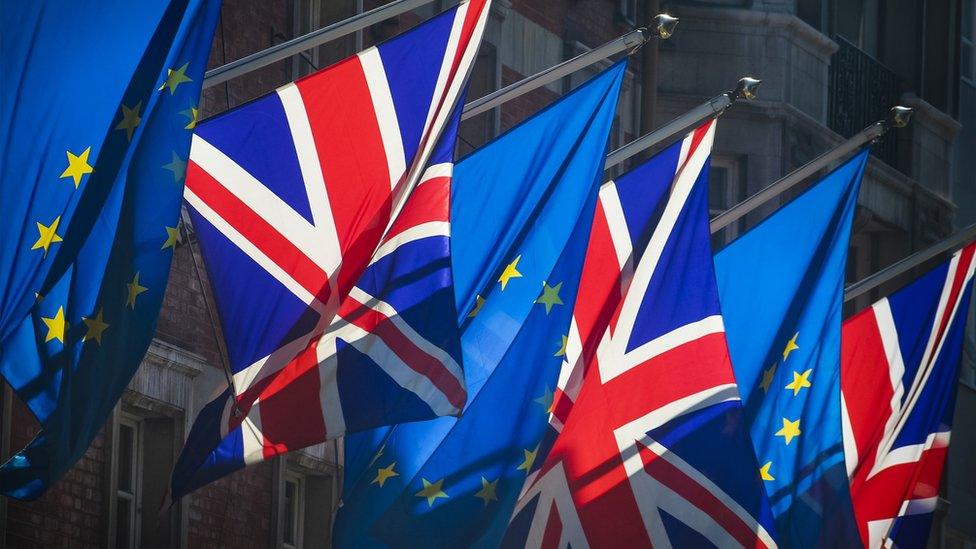
The study suggests the "Norway option" is the least damaging Brexit
It would cost Northern Ireland's economy an estimated 1.1% of GDP compared to no Brexit.
The FAI cautions that it has used a "single region model" which only captures the the impact of Brexit on NI in isolation.
It does not consider knock-on effects from a weaker UK or Republic of Ireland economy.
It makes a rough estimate that a weaker UK economy could lead to a further 1% to 1.5% GDP loss in Northern Ireland.
The Northern Ireland Department for the Economy, which commissioned the report said, the analysis showed "there will be material and significant economic consequences arising from the decisions that will ultimately be made around the terms of the UK's withdrawal from the EU.
"All of the Brexit scenarios involve a negative economic impact in the long run, with the least impactful being a 'soft Brexit.'"
'Between 15,000 and 18,500 less jobs'
It said the worst case scenarios examined by the FAI would equate to between 15,000 and 18,500 fewer jobs compared to no Brexit.
Ulster University economist Esmond Birnie said the FAI had produced "a solid, careful and useful piece of work which exercises due modesty about what economic forecasts can and cannot do."
"Probably the main take away from the results is this: there are long run economic costs in all the Brexit scenarios but the scale of these costs is much less than in earlier modelling exercises."
- Published27 August 2019
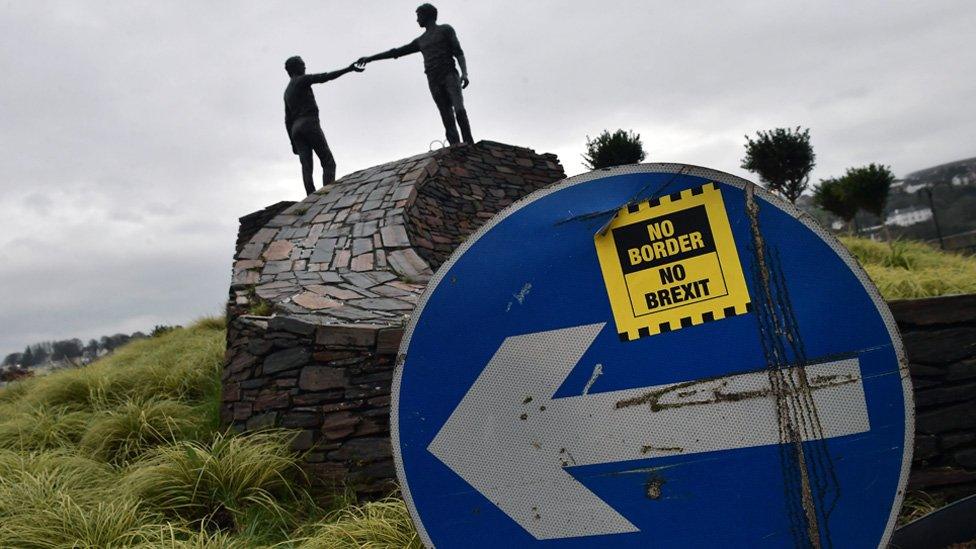
- Published22 August 2019

- Published3 September 2019
